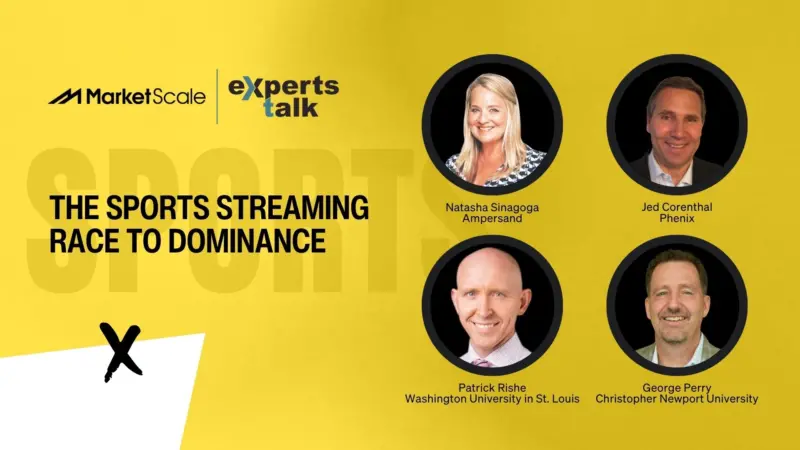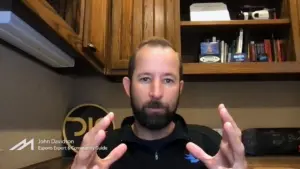NASCAR’s Landon Cassill Becomes First Driver To Be Paid In Crypto
“It doesn’t surprise me that Landon’s the first one, because I think he thinks about partnership marketing and how to be relevant to the brand.”
The NASCAR and cryptocurrency worlds are converging around a crypto-asset trading platform, adding a professional racer to the shortlist of professional athletes paid in crypto, and the first NASCAR driver to be paid in crypto.
How does this move impact the backend operations and sponsorship strategies of racing industry professionals? Joining MarketScale TV to discuss the deal with Voice of B2B Daniel Litwin is Steven French, Senior Director of Business Development at Texas Motor Speedway.
“As a brand, marketing, and sales guy here at Texas Motor Speedway, I think it’s very exciting because the opportunities right now are a little limited, but a year from now, or five years from now, you’re going to see it more and more,” French said on cryptocurrencies building awareness among the industry.
The big news comes from Landon Cassill, the driver behind JD Motorsports’ No. 4 Chevrolet, as he locks in a new sponsor: Voyager Digital, a crypto-asset trading platform. This is making NASCAR history as the first driver to take his salary as cryptocurrency in full, taking several tokens in a portfolio of digital assets, including Voyager Token (VGX), Litecoin (LTC), and Bitcoin (BTC). The move is consistent with Cassill’s digital adoption, according to French, as Cassill was also an early adopter of iRacing, a sim racing game for PC that gained traction during the pandemic.
“It doesn’t surprise me that Landon’s the first one because I think he thinks about partnership marketing and how to be relevant to the brand,” French said.
In interviews on the partnership, Voyager CEO Steve Ehrlich cited a larger mission of getting the word out about the latent opportunities that crypto provides in the transition away from physical currency to digital currencies. Ehrlich’s optimism seems to reveal a view from industry leadership that the NASCAR fanbase is a ripe base of future crypto users, and French agrees, noting that venues like Texas Motor Speedway would also come on board with cryptocurrencies as they become more integrated with the sport’s culture.
Follow us on social media for the latest updates in B2B!
Twitter – @MarketScale
Facebook – facebook.com/marketscale
LinkedIn – linkedin.com/company/marketscale







